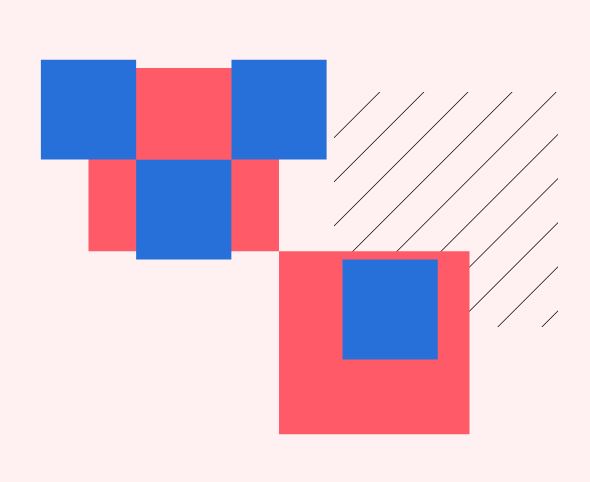The Cognitive Algorithm and Its Musical Applications
Recent developments in systematic musicology, incorporating data from cognitive sciences, have significantly transformed the way we approach temporal musical works. In musicology, this shift has led to the emergence of cognitive musicology, and more specifically, "cognitive analysis", which has introduced major advancements in how musical forms and structures are represented. The computational implementation of these new concepts could revolutionize the handling of digital data flows by emphasizing the importance of second-order algorithmics, capable of modeling key aspects of cognitive strategies activated by musical structures. Such algorithmics would enable the proposal of new representations, particularly self-representations of its own behavior, the significance of which for musical works remains largely unexplored. All these procedures could be subjected to psycho-cognitive validations, notably through online systems involving volunteer listeners in participatory research.
The objective of this thesis is thus to propose a computational model of these new ideas from cognitive musicology and to conduct the necessary computational and musicological experiments to validate the concepts and their concrete implementation.
Publications, Conferences and Seminars
Publications :
-
J. Calandra. L’algorithmie cognitive et ses applications musicales. Musique et musicologie. Manuscrit de Thèse, Sorbonne Université, 2023. Français.
-
J. Calandra, J.-M. Chouvel, M. Desainte-Catherine, E. Michel, Visualisation of Multi-scale Formal Diagrams for Music Analysis. 2023 International Workshop On Multilayer Music Representation And Processing (MMRP). (2023)
-
J. Calandra, J.-M. Chouvel et M. Desainte-Catherine, Multi-Scale Oracle and automated representation of for- mal diagrams based on the cognitive algorithm. Int. Conf. On Technologies for Music Notation and Represen- tation – TENOR 2021, Hamburg, Germany, 2021
-
J. Calandra, J.-M. Chouvel, M. Desainte-Catherine et P. Hanna, Génération Automatique de diagrammes formels par un algorithme cognitif modulaire : étude préliminaire, Journée d’Informatique Musicales (JIM), Strasbourg, France, 2020
Conferences :
-
J. Calandra. L’algorithmie cognitive et ses applications musicales. Musique et musicologie, Sorbonne Université, 2023. Français.
Soutenance de Thèse, Paris, France -
J. Calandra, J.-M. Chouvel, M. Desainte-Catherine, E. Michel, Visualisation of Multi-scale Formal Diagrams for Music Analysis. 2023 International Workshop On Multilayer Music Representation And Processing (MMRP). (2023)
Conférence, Pise, Italie -
J. Calandra, J.-M. Chouvel et M. Desainte-Catherine, Multi-Scale Oracle and automated representation of for- mal diagrams based on the cognitive algorithm. Int. Conf. On Technologies for Music Notation and Represen- tation – TENOR 2021, Hamburg, Germany, 2021
Conférence, Hambourg - en visio, Allemagne -
J. Calandra, J.-M. Chouvel, M. Desainte-Catherine et P. Hanna, Génération Automatique de diagrammes formels par un algorithme cognitif modulaire : étude préliminaire, Journée d’Informatique Musicales (JIM), Strasbourg, France, 2020
Conférence, Strasbourg - en visio, France -
J. Calandra, P. Hanna, P. Legrand, M. Desainte-Catherine, Pict2Audio : Sound Generation by Hand-Drawn Im- ages Analysis using Convolutional Neural Networks, Poster for Linux Audio Conference (LAC), Bordeaux, France, 2020 p.61
Conférence, Bordeaux - en visio, France
Organized seminars in the context of the thesis :
Presentations at seminars :
-
MORFOS : un logiciel d’analyse musicale pour l’obtension de la forme musicale en temps-réel. Séminaire doc- toral du SCRIME, Université de Bordeaux, 20 juin 2024.
-
Formalisation de l’Algorithme Cognitif Multi-échelle. Séminaire du SCRIME, LaBRI, Université de Bordeaux, 3 juillet 2023.
-
Charge cognitive et segmentation lors de l’écoute musicale active. Séminaire doctoral et post-doctoral ”com- position, cognition et apprentissage”, IReMus, Sorbonne Université, 18 mars 2023.
-
Représenter l’écoute pour comprendre ce que la musique nous enseigne du cerveau humain. Présentation pour le Pole d’Enseignement Supérieur de la Musique et de la Danse, PESMD Bordeaux Nouvelle Aquitaine, 24 février 2023.
-
Définitions d’un agenda pour le calcul de similarités à différentes échelles avec l’Algorithme Cognitif. 1ères Journées de l’Atelier Musiscale, GDR MADICS CNRS, 6 octobre 2022.
-
Représenter l’écoute pour comprendre ce que la musique nous enseigne du cerveau humain. SCRIME : 20 ans de recherche et de créations, LaBRI, Université de Bordeaux, 24 juin 2022.
-
The cognitive algorithm : a music listening model and tool for music analysis. Séminaire doctoral de l’AFoDIB, LaBRI, 10 novembre 2021.
-
L’algorithmie Cognitive et ses applications musicales. Mini-soutenances de l’IReMus, Sorbonne Université, 8 septembre 2021.
-
The Cognitive algorithm and its musical applications. Image&Son Day, LaBRI, Université de Bordeaux, 31 août 2021.
-
Production par l’algorithme cognitif de diagrammes formels hiérarchisés pour l’analyse musicale. Séminaire du SCRIME, LaBRI, Université de Bordeaux 24 juin 2021.
-
Oracle multi-échelle et représentation automatisée de diagrammes formels basés sur l’algorithme cognitif. Séminaire Sémiologie générale et musicologie, IReMus, Sorbonne Université, 28 mai 2021.
-
L’algorithmie cognitive et ses applications musicales. Séminaire du SCRIME, LaBRI, Université de Bordeaux, 3 juillet 2020.
-
L’informatisation des concepts de l’analyse cognitive. L’analyse musicale et la modélisation informatique des activités cognitives, Séminaire de l’IreMus, Sorbonne Université. 15 novembre 2019
